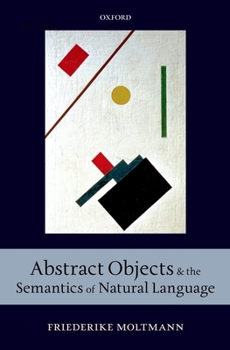Abstract Objects & Sem of Nat Lang C
Abstract objects have been a central topic in philosophy since antiquity. Philosophers have defended various views about abstract objects by appealing to metaphysical considerations, considerations regarding mathematics or science, and, not infrequently, intuitions about natural language. This book pursues the question of how and whether natural language allows for reference to abstract objects in a fully systematic way. By making full use of contemporary linguistic semantics, it presents a much greater range of linguistic generalizations than has previously been taken into consideration in philosophical discussions, and it argues for an ontological picture is very different from that generally taken for granted by philosophers and semanticists alike. Reference to abstract objects such as properties, numbers, propositions, and degrees is considerably more marginal than generally held. Instead, natural language is rather generous in allowing reference to particularized properties (tropes), the use of nonreferential expressions in apparent referential position, and the use of "nominalizing expressions," such as quantifiers like "something." Reference to abstract objects is achieved generally only by the use of 'reifying terms', such as "the number eight."
Format:Hardcover
Language:English
ISBN:0199608741
ISBN13:9780199608744
Release Date:May 2013
Publisher:Oxford University Press, USA
Length:256 Pages
Weight:1.50 lbs.
Dimensions:1.1" x 6.1" x 9.2"
Customer Reviews
0 rating





